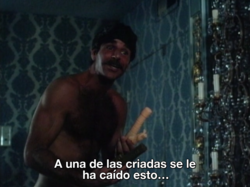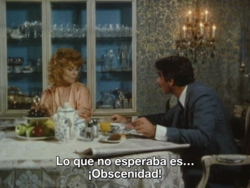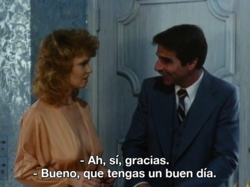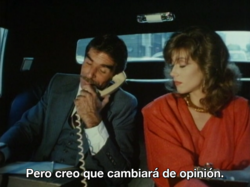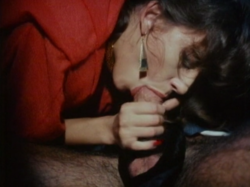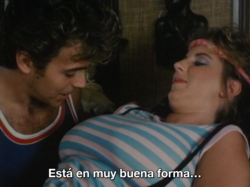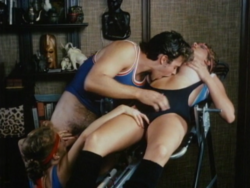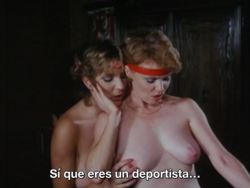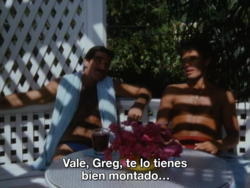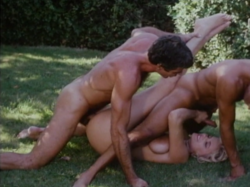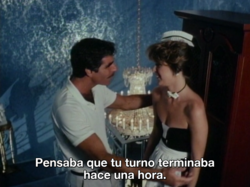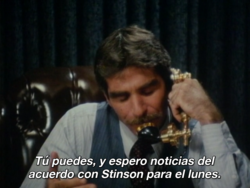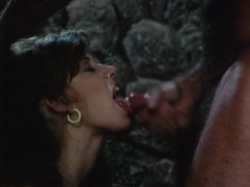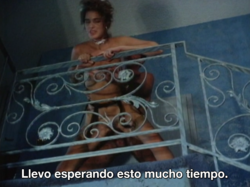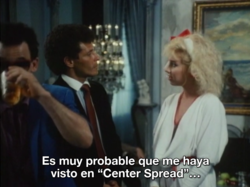- Created on: 2025-07-26 08:49:03
- Link to subtitles: Beverly Hills Exposed (1985)
- Estimated reads: 87
- Likes counter: 1
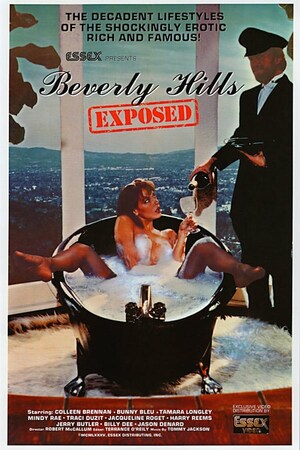
Tags: Gary GraverRobert McCallumvintage porngolden ageColleen BrennanBunny BleuTracy DuzitHarry ReemsJerry ButlerBilly Dee
Tanya Towns (Colleen Brennan, who seems to be the only compelling element in the entire film, and whose role is woefully underutilized) plays the neglected wife of Gregory Towns (an overacting Harry Reems, who delivers far too much slapstick and absurd dialogue). Both members of this seemingly failed marriage struggle with their sexuality separately. He with the "attractive" maids, while Jerry Butler appears as the Tanya's personal trainer, and she jumps at the chance to share him with Mindy Rae (in a very bland and unimpressive appearance). Overall, the performances are really weak, forced, and lacking in charisma.
The plot is boring and suffers from a lack of narrative rhythm, generating endless filler scenes to the detriment of a script that could have been better crafted, as the great Gary Graver already had done with projects like "V, The Hot One" (1978), "Co-Ed Fever" (1980), "Amanda By Night" (1981), or one of his masterpieces, "Indecent Exposure" from 1982. Therefore, the creative collapse and exhaustion of this director at the end of the Golden Age of adult cinema is all too evident.
In reality, what Mr. Towns is trying to do in "Beverly Hills Exposed" is to strike a sweet deal with one of his wealthiest clients, a certain Jonathon Stinson (Billy Dee), who comes to visit Gregory's mansion to be sexually entertained, even by the host's own daughter, a Bunny Bleu who also fails to generate the morbidity that her genre predecessors (Annette Haven, Samantha Fox, Veronica Hart, Arcadia Lake, etc.) displayed.
In any case, we mustn't forget that this is a film by Gary Graver (AKA Robert McCallum), and his cinematic talent is beyond question, assuming that even a minor film by this filmmaker is far superior to most of the works released during his golden age. Cinephiles will perhaps notice many nods to classic cinema throughout his work, especially to the films of Orson Welles. Graver was Welles's go-to cinematographer during the final stages of his independent filmmaking career. That's a lot to say.
